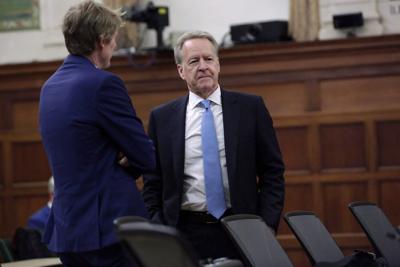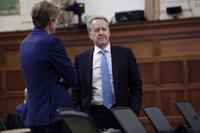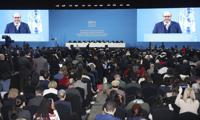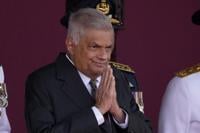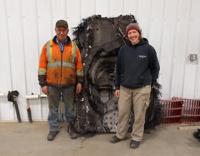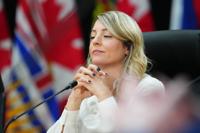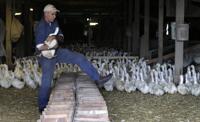OTTAWA - Ottawa's former chief trade negotiator Steve Verheul says Alberta is undermining Canada's attempts to prevent the U.S. from levying damaging tariffs — a measure U.S. President Donald Trump has said could drive Canada into "failed state" status.
Prime Minister Justin Trudeau has rallied most of the premiers to agree that all sectors of the ´şÉ«Ö±˛Ą economy could be deployed to fight back against Trump's plan to impose 25 per cent tariffs on all imports from Canada.
Alberta Premier Danielle Smith disagrees. She has said that Canada should not threaten the U.S. with retaliatory tariffs or cutting off energy exports, and should focus instead on finding common ground.
Earlier this week, Verheul attributed Canada's successful renegotiation of NAFTA during Trump's first presidency — which culminated in the Canada-United States-Mexico Agreement (CUSMA) — in part to the coherent message coming from the provinces, industry and Ottawa.
"When they all briefed up, the messages were the same and it was much easier to do it that way," he told the Toronto-based Empire Club on Tuesday.
"There is a very strong sense of unity among all of the premiers at this point — with the one exception of Alberta."
Verheul said that Canada's leaders must try to get Alberta's government "on board too. Because the fact that Alberta has gone in a different direction through these last few weeks has significantly undermined Canada's position."
For now, Canada is in "damage control" mode, he said.
Smith's office has not responded to a request for comment.
Since Verheul made his remarks Tuesday, other premiers have pushed back on the federal position on tariffs.
Saskatchewan Premier Scott Moe said Wednesday he had "an issue with" putting tariffs on energy exports. That same day, Quebec Premier François Legault suggested such measures should be deployed only with the provinces' consent.
On Friday, Trump again said that Canada should become an American state, adding "it's sort of crazy" to suggest the U.S. needs ´şÉ«Ö±˛Ą imports.
Trump said he told Trudeau earlier that the U.S. is subsidizing Canada to the tune of billions of dollars, and claimed Trudeau said that if those subsidies stopped, Canada would be "a failed nation."
The president insisted Canada would have "better health coverage" and "wouldn't have to worry about military" as an American state, adding that Canada has been "very nasty to us on trade."
Experts have said that Canada's trade imbalance with the U.S. largely stems from Canada's energy exports. They also say it's wrong to think of this as a subsidy — particularly as Trump offers wildly diverging estimates of its size.
Asked about Trump's remarks, Defence Minister Bill Blair said his "unfortunate rhetoric" is "offensive to us" and "Canada will never be a failed state."
Liberal leadership contestant Chrystia Freeland, who helped steer the NAFTA renegotiations, said Canada would "absolutely not" become a failed state if Trump's threatened tariffs take effect.
— With files from Kyle Duggan
This report by ´şÉ«Ö±˛Ąwas first published Jan. 24, 2025.

